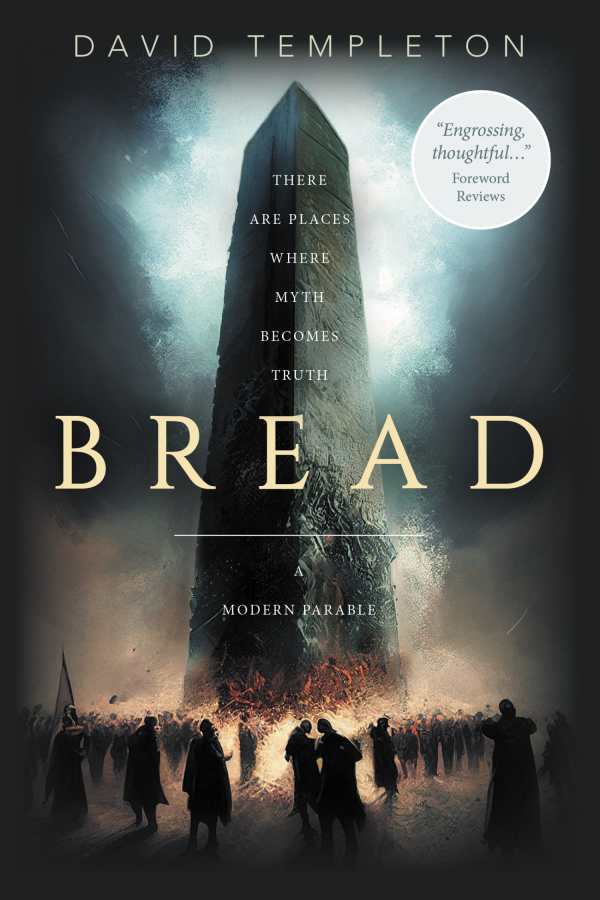Bread
A Modern Parable
Bread is a thoughtful Christian parable set in a divided world in which one life can make a difference.
David Templeton’s engrossing Christian novel Bread is a spiritual parable about the transformational power of relationships.
The book begins with the mythic founding of the community of Solé, an Edenic land untouched by violence where each person has all they’ll ever need. But violence destroys the happy peace of Solé, leading Logan, a man from God, to step in, bringing hope and feeding the people mystical bread that imparts hopefulness and joy.
Contemporary Solé is a far different place than it was in Logan’s time; commentary on the corrosive power of evil, which leads social decay, plays into the book’s progression. In the book’s present, Caleb, a citizen of Solé, struggles to connect with his wife, Amenda, while working for a nameless company that seeks to distract people from the evils of disconnection and desire. And Caleb’s world is divided: some seek the peace of bread-sharing; others enjoy provoking division. A coming conflict is implied.
Though he, like every citizen of Solé, has a particular gift from God, on the surface, Caleb appears to be an ordinary hero. He excels in dancing, evoking the biblical King David, but he is also prone to being distracted. However, during a hike in the forest, God reveals that “progress … is available to you” and hints at Caleb’s eventual transformation. He is tempted toward evil along the way, as when he’s offered bread and love from another woman. That he’s at constant risk infuses the story with tension.
The narrative echoes the Bible in form. Indeed, its opening pages are an update on the Cain and Abel tale, complete with the use of a rock that parallels the Genesis account. Allusions to prophecy and proverbs recur throughout, as when Caleb evokes Galatians, and when the final battle is covered in terms that recall Revelation.
The secondary characters are present to highlight Caleb’s struggles; one friend helps him to be true to himself and to his wife; Amenda struggles to find herself, increasing her distance from her husband. Indeed, each chapter highlights either breakdowns or buildings-up within Caleb’s relationships. That good relationships are crucial to the health of society at large is suggested throughout. And in the end, Caleb’s personal transformation feeds into a society-wide conflict, as educators poison their students’ minds and rabid protesters call the bread-eaters evil. The growing conflict has keen dramatic stakes, paving the way for the exciting closing confrontation in the village square.
Bread is a thoughtful Christian parable set in a divided world in which one life can make a difference.
Reviewed by
Jeremiah Rood
Disclosure: This article is not an endorsement, but a review. The publisher of this book provided free copies of the book and paid a small fee to have their book reviewed by a professional reviewer. Foreword Reviews and Clarion Reviews make no guarantee that the publisher will receive a positive review. Foreword Magazine, Inc. is disclosing this in accordance with the Federal Trade Commission’s 16 CFR, Part 255.

